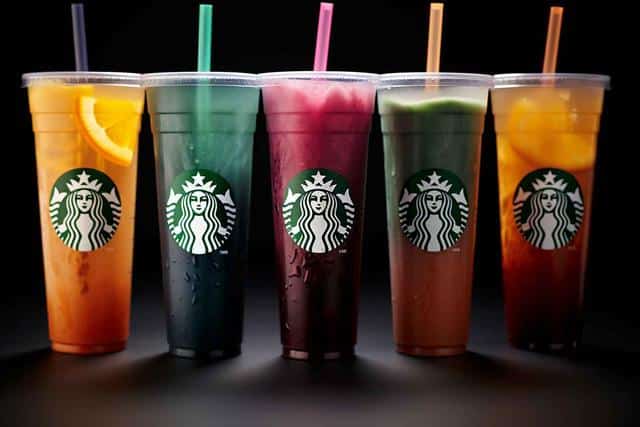Starbucks Sued for Selling ‘Chemical Soup’ of Artificial Colors and Flavors Disguised as Food
Starbucks is facing a class-action lawsuit for misleading customers by selling chemicals, colors, and artificial flavors disguised as healthy food.
The lawsuit is focused on Starbucks’ popular Refresher drinks, which claim to feature fruit like açaí, mango, and passionfruit in their names. The problem? The plaintiffs allege these beverages contain none of these foods, relying instead on a “chemical soup” of flavors and colors to create the illusion of fruit.

The lawsuit, filed by plaintiffs Joan Kominis and Jason McAllister, has been given the green light to proceed after U.S. District Judge John Cronan rejected Starbucks’ motion to dismiss the case. The judge determined that the claims presented by the plaintiffs are significant enough to warrant further examination in court.
Starbucks attempted to dismiss the lawsuit, asserting that the names of the Refreshers describe the flavors, not the actual ingredients. The coffee chain argued that customers could clarify any confusion about the drinks by asking their baristas.
Judge Cronan, however, disagreed, ruling that “a significant portion of reasonable consumers could find [the names] misleading.” He allowed nine of the lawsuit’s 11 claims to proceed, dismissing only two: an intentional fraud claim and a repetitive unjust enrichment claim.
“Unlike in some cases, no information in the name or advertising for the Products affirmatively informs the consumer whether a fruit name indicates a flavor or ingredient,” Judge Cronan wrote in his decision.
Starbucks first launched its Refresher line in 2012, describing it as a “global breakthrough beverage innovation” made with “real fruit juice” and offering a boost of energy from green coffee extract.
Since then, the cold beverage category, including Refreshers, has become a cornerstone of Starbucks’ success. During its Q4 earnings call in November 2022, Starbucks reported that cold drinks accounted for a staggering 76% of its U.S. beverage sales.
The plaintiffs argue that the misleading labeling of the Refresher drinks undermines consumer trust and damages the health of customers.
yogaesoteric
January 12, 2025
